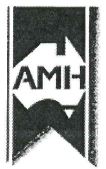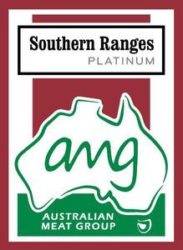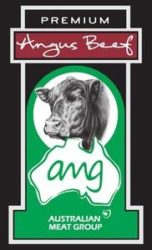A recent finding of trade mark infringement has been overturned by the Full Court of the Federal Court of Australia in Australian Meat Group Pty Ltd v JBS Australia Pty Limited [2018] FCAFC 207.
Background
JBS Australia Pty Limited (JBS) is the owner of Australia Meat Holdings. It holds two trade mark registrations in respect to a range of meat and meat products – a logo mark (shown below) and word mark each incorporating the acronym ‘AMH’.

Australian Meat Group Pty Ltd (AMG) used a range of marks that include the letters ‘AMG’ in word and logo format. It filed applications under the Trade Marks Act 1995 (Cth) (the Act) to register various logo trade marks (shown below) in relation to meat products and storage.
 |
 |
 |
JBS commenced infringement proceedings against AMG under section 120 of the Act, on the basis that the ‘AMG’ marks being used were substantially identical with, or deceptively similar to, its own registered ‘AMH’ marks. Claims of passing off and contravention of the Australian Consumer Law were originally made in addition to the claims of trade mark infringement, but were not pursued.
JBS also opposed the registration of the ‘AMG’ logo mark. The opposition proceedings were postponed, pending the final outcome of the infringement case.
At first instance, Greenwood J agreed with JBS. Though His Honour did not find the marks substantially identical, he concluded that they were deceptively similar. As a result, AMG’s use of its marks infringed JBS’ registrations. An injunction, amongst other orders, was granted to restrain AMG from using the infringing marks.
AMG appealed the decision to the Full Court of the Federal Court of Australia, on the basis that the Court incorrectly assessed deceptive similarity by failing to consider:
- The extent to which elements of the trade marks were descriptive or common to the trade; and
- The principle that marks consisting of a small number of initials have little inherent capacity to distinguish;
and on the basis that the judge incorrectly took into account JBS’ prior use and reputation of its registered marks, and gave no or insufficient weight to the lack of evidence of actual confusion.
Decision
Allsop CJ, Besanko and Yates JJ of the Full Federal Court unanimously allowed the appeal, finding that the ‘AMG’ trade marks were not deceptively similar to the ‘AMH’ trade marks of JBS. Accordingly, there had been no infringement of JBS’ registered trade marks.
Reasoning
The Court was of the opinion that the primary judge erred in his comparison of the ‘AMH’ and ‘AMG’ trade marks. In its view, the way the parties presented the matter heavily influenced Greenwood J’s judgment, causing him to proceed from an incorrect starting point. In particular, JBS’ submissions emphasised the strong reputation associated with the ‘AMH’ marks. This evidence was certainly relevant to the initial claims of passing off, misleading or deceptive conduct and the making of false or misleading representations. However, as such claims were abandoned, the evidence had little bearing upon the cause of action pursuant to s 120 of the Act. It was therefore wrongly considered.
Further, Greenwood J’s focus upon reputation distracted him from analysing in depth other distinguishing features of the trade marks. As a result, the ‘AMH’ acronym was given a predominating significance that it did not deserve. The overarching issue with the primary decision was that, after removing the influence of the ‘AMH’ reputation, the trade mark comparison required to determine deceptive similarity was fundamentally different to the comparison engaged in by Greenwood J.
In comparing the ‘AMH’ logo mark with each ‘AMG’ mark, their Honours noted that the logo mark was a combination of features that must be considered as a whole. Accordingly, they observed the geometric nature of the ‘AMH’ letters and map of Australia, which formed an angular impression. Such features were set upon a ribbon element featuring sharp, vertical lines. The ‘AMG’ marks were found to be quite different. In relation to the ‘AMG’ logo mark, the presence of the name ‘Australian Meat Group’ was influential. The ‘AMG’ acronym was presented in a lower case cursive script, and the map of Australia was of a consistent, flowing nature. In allowing for the possibility of imperfect recollection, it could not be found that the ‘AMG’ logo mark was deceptively similar to the ‘AMH’ logo mark. The Court’s view was that the transactions they influence were not insignificant, the stylised rendering of the map of Australia featured on each mark was notably different, and the acronyms featured different letters and style. As a whole, the ‘AMG’ logo mark did not replicate the geometric appearance or angularity of the ‘AMH’ logo mark.
In relation to the ‘AMH’ and ‘AMG’ word marks, their Honours found that too much significance was placed on the identical ‘AM’ components of each acronym. Greenwood J wrongly discounted the distinguishing last letters, ‘H’ and ‘G’, in his comparison. The word marks were found to be undeniably different; when paired with the fact that the meat trade features significant purchases in terms of volume and value by traders exercising discernment and inquiring minds, the word marks were not deceptively similar.
The ‘AMG’ Premium Angus Beef and Southern Ranges Platinum marks were also not deceptively similar; their overall visual features were so different to the ‘AMH’ logo mark that they could not be the source of confusion.
Implications
This decision indicates that the reputation of a registered trade mark, no matter how strong, is not relevant when assessing infringement. Brand owners considering enforcing their registrations or opposing another party’s application on the basis of their prior registration should proceed carefully and seek professional advice, as any unique feature may be enough to distinguish what could otherwise be regarded as a similar word or logo mark. Ultimately, the question of whether a trade mark has been infringed or not will turn on the prevailing circumstances.
How can we assist?
Our trade marks team has extensive experience in assisting owners with registering brands and enforcing their registered rights. Please contact a member of our team should you require any assistance with protecting or enforcing your brand throughout Australia or elsewhere.
This article was written by Luke Dale, Partner, Niomi Abeywardena, Special Counsel, and Annabel Nettle, Law Clerk.
| Luke Dale
P: +61 8 8205 0580 E: lcdale@hwle.com.au |
Niomi Abeywardena
P: +61 8 8205 0583 E: nabeywardena@hwle.com.au |
